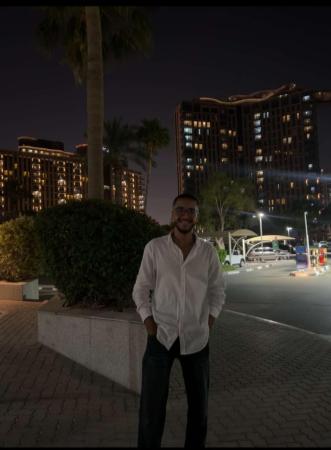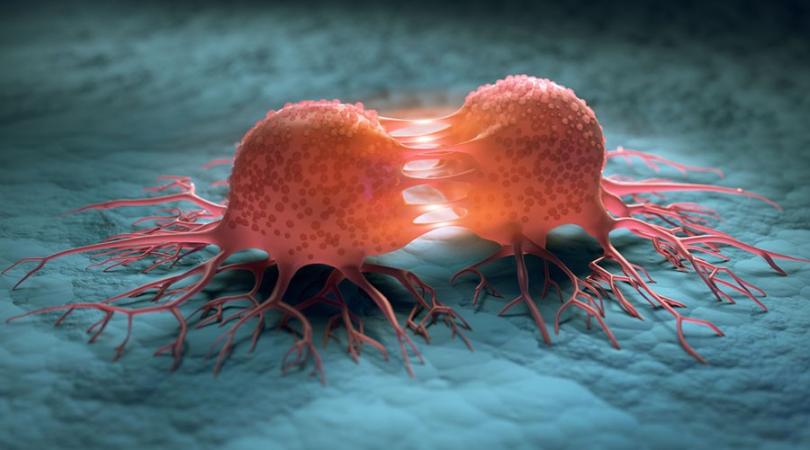A new homegrown cancer therapy facility in Abu Dhabi could soon be providing life-saving treatment not just to UAE patients, but across the world, as Burjeel Medical City prepares to launch production of CAR T-cell therapy – one of the most advanced and personalised cancer treatments – globally.
The UAE’s first facility to manufacture CAR T-cells locally is expected to begin treating patients before the end of this year, Dr Ajlan Al Zaki, director of the Burjeel Hematology Oncology & Cellular Therapy Center, said.
“What we are building can manufacture up to 200 samples at one time,” he said. “Now, not all 200 patients can receive treatment simultaneously, so we’d have to build and scale it gradually.”
While previous reports have highlighted the centre’s ambitious aim to cut costs by up to 90 per cent, Dr Al Zaki says the story is much bigger. “My mission and Burjeel’s mission would be to expand access to those developing countries that need these therapies but can’t afford it,” he said. “If we can achieve that, that would be a dream come true.”
From Texas labs to UAE clinics
Dr Al Zaki, an Emirati physician-scientist with experience in cellular therapies, returned to the UAE in March after years at MD Anderson Cancer Centre in the US, where he treated patients and manufactured CAR T-cells in the lab. Just weeks after his return, Burjeel announced plans to begin local production of the therapy.
“We announced on April 18, and the facility should be ready in four to six months,” he told Khaleej Times, adding that the target is ambitious but achievable. “I think we have some very good people who can help facilitate that.”
CAR T-cell therapy, short for Chimeric Antigen Receptor T-cell therapy, involves extracting a patient’s own immune cells, reprogramming them to recognise and destroy cancer cells, and re-infusing them into the body. It's been approved for use in the US since 2017, primarily for blood cancers like leukaemia and lymphoma.
Unlike conventional chemotherapy, which targets both healthy and cancerous cells, CAR T is designed to precisely identify cancer cells based on specific markers.
“You’re using your own immune system...but amplified,” Dr Al Zaki explained. “It’s programmed and modified to target a specific marker while minimising damage to normal cells.”
For Dr Al Zaki, CAR-T's ability to avoid the most difficult side effects of chemotherapy — such as hair loss, nausea, and immune suppression - was one of the factors that first drew him to this field. “It's a huge difference for patients,” he said. “Many people who have gone through chemo would not want to go through it again.” He added that seeing firsthand how transformative these therapies were for patients with no other options is what led him to specialise in cellular therapy. “I wanted to be involved in something that is truly game-changing,” he said.
A new model of affordability
The cost of CAR T-cell therapy in the United States can exceed $1 million per patient when factoring in manufacturing, hospitalisation, and travel. Burjeel’s model, by contrast, aims to produce the therapy at a fraction of the price. “The reality is, most of the cost in CAR-T comes from proprietary manufacturing methods that are commercially driven,” said Dr. Al Zaki. “But when you partner with nonprofits like Caring Cross and adopt open-access technology, you remove those layers of profit and bring costs down.”
He said the approach is not simply about cutting costs arbitrarily, but about rethinking the way these therapies are manufactured and delivered. The aim is to preserve quality, safety, and effectiveness while removing financial barriers. By localising production and eliminating overseas logistics, Burjeel is hoping to reduce treatment costs by up to 90 per cent. “And once that infrastructure is in place, we can start offering these therapies to patients in the region and beyond,” he said.
Reaching Gulf and Global South
At a time when only a few countries in the Gulf offer CAR-T treatment, the Burjeel initiative aims to provide the therapy without requiring patients to travel abroad. “If patients get treated here, that can significantly reduce the cost,” said Dr Al Zaki, noting that some patients currently pay over $1 million for treatment in the US, excluding hospitalisation and travel.
But the long-term ambition goes beyond national borders. “Therapies like this should be offered to everybody who needs it,” he said. “Many countries can’t afford it, and that needs to change.”
Burjeel’s partnership with the US-based nonprofit Caring Cross will also allow it to use manufacturing technology at cost, avoiding the price tags of commercial pharmaceutical providers.
He added one of the CAR-T cell products in development could potentially treat both lymphoma and leukaemia using three different markers. “If we use three different targets, we can treat cancer better and prevent resistance,” he explained.
Future plans for new treatment options
The first wave of treatment at Burjeel will focus on diffusing large B-cell lymphoma and B-cell acute lymphoblastic leukaemia. However, future plans include tackling multiple myeloma and exploring use in brain cancers.
Dr Al Zaki said early studies in this field appear promising and could open the door to new treatment options for patients with brain tumours. Surprisingly, the therapy might also have potential beyond oncology. “Yes, there is a chance it can treat HIV,” he confirmed, adding that the centre would rely on future clinical trials to validate such uses.
While he currently leads the effort solo, Dr Al Zaki hopes to see more Emirati doctors pursue this emerging and impactful field. He emphasised that building local expertise will be crucial to long-term success. “We can’t do this alone,” he concluded.

